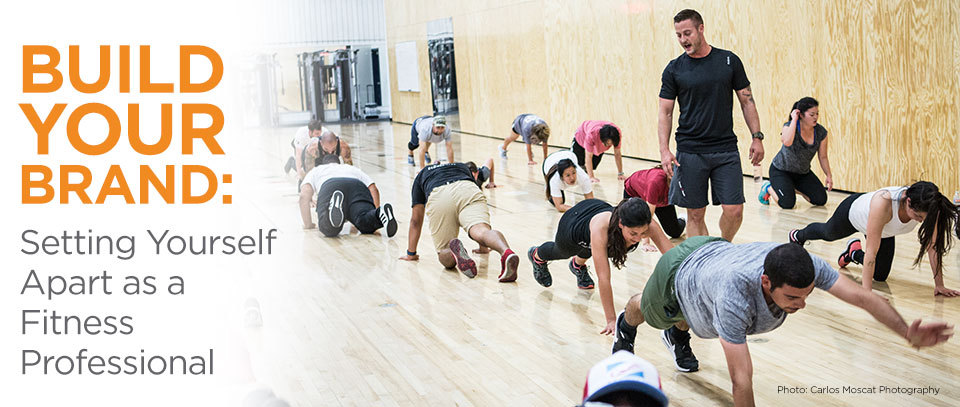As fitness professionals, we work in an industry where currently there are no standardized national or state requirements for education or certifications to work within any specific fitness profession.
It’s not about whether having national or state standards is right or wrong; it’s about how to maximize and optimize the opportunities that currently exist to set a higher bar for fitness.
Most companies or programs have instilled a set of requirements for hire or practice, but these pre-requisites are unique to each organization. We will explore the different types of practical education, certifications, and direct application learning environments within the fitness industry.
This methodology can show you a path to set yourself apart as a fitness professional. Building your brand based upon education, certification, and experience will provide a solid base for your business to grow and expand in a successful, professional manner.
Importance of Education
Formal education is extremely important when it comes to fitness professionals. As a community, we are expected to know and understand anatomy, biomechanics, and exercise physiology. This basic expectation can be expanded upon to dive deeper into a molecular level of biology, chemistry, physics and how they directly apply to the human body and physical activity.
At the university level, there is a growing number of majors, specialties, and certification programs that cater to those looking to become fitness professionals such as: Exercise Science, Kinesiology, Health Sciences, Nutrition and Exercise Physiology, Health and Fitness and/or Sports Management. Exercise Science is now becoming a standard option at many universities and with this educational opportunity we can master our specific fitness specialization.
If you are considering an upper level education option, consider starting with the Bachelor of Science and shadowing as many fitness professionals as possible to learn what area of “specialization” piques your interests before selecting a narrow path for your degree. After learning what inspires and motivates you, selecting 1 or 2 specializations can enhance your overall degree.
Importance of Certifications
Although, there are formal education options, there are also many ways we can continue to educate ourselves outside of the scholastic environment. With hundreds of different types of certifications, it can also be very difficult to choose the “right” one. Here are a few tips for selecting the right certification.
Pursue at least one certification that is accredited by the National Commission for Certifying Agencies (NCCA). All NCCA certification courses must undergo comprehensive evaluation and consistent renewal processes to keep their accreditation. There are also continued education and recertification requirements that keep these fitness professionals up to date on current fitness studies and trends.
For a complete list of NCCA accredited fitness certification programs, go to https://www.credentialingexcellence.org/ncca.
After establishing a nationally accredited certification, you can then start expanding your certification catalog by selecting courses specific to your interests and/or strengths in the fitness industry. Specialty certifications not only build your resume, but also serve as the foundation to building your brand and setting yourself apart from others in the industry.
Importance of Identifying Specialization vs. Broad Training Methodology
As a fitness professional, there are many different types of specializations that can be achieved through courses and certifications. Personal Training, Group Fitness Instruction, Sports Performance, Power Lifting, Olympic Lifting, Indoor Cycling, Clinical Training, Injury Prevention and Corrective Specialist are just a few. Most fitness professionals work in a few of these environments and need to have certifications and experience in all that apply.
It is important when building your brand to determine if you would like to be labeled as a specialist or a broad-spectrum generalist. The easiest way to understand this is by comparing our profession to doctors. A general practitioner would be a fitness expert with a broad training methodology and needs to know “a little bit of everything” to be able to apply it to their clients. Where as a brain surgeon would be compared to a fitness specialist like a Sports Performance Specialist that would work directly with professional athletes. When it comes to deciding to become a specialist or a broad spectrum methodology fitness expert, it is essential to understand the importance of seeking out both education and certifications that will expose you to the knowledge base needs for that profession.
Importance of Application
No matter how much we learn and educate ourselves within the fitness industry, if we do not utilize this knowledge in a practical application environment then we truly will never reach our full potential. Take every opportunity to shadow others – the more you can put yourself in an environment to learn directly from a fitness professional in their work setting the more you will learn how to take on these same work challenges in your own profession. Find your idols of fitness and invest the time to shadow and learn from them. This experience is priceless and can almost never be learned in the classroom setting. By learning these skills you will broaden your abilities to work with different demographics and solve solutions in an efficient and effective way.
Creating the most solid fitness brand is an investment, however setting yourself apart as an educated, certified, and experienced fit pro will increase your influence and job security in this rapidly growing career field. Start by establishing a foundation of higher education in Exercise Science. Next, build on your brand by selecting a nationally accredited certification. After that, expand your certification list by selecting courses and certifications that directly apply to where you want to grow as a fitness professional. Finally, throughout this entire process shadow, intern, and practice your skills as much as possible to learn how to directly apply all of your knowledge. These steps will enhance your overall credentials and continue to develop the growth and standards within the fitness industry.
